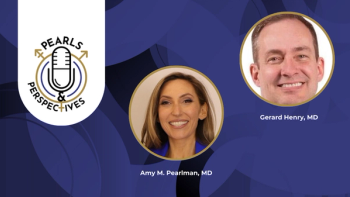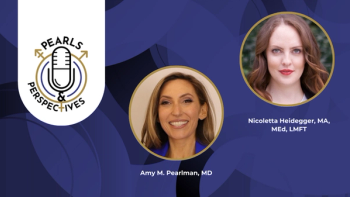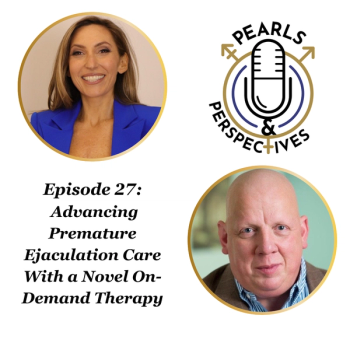
- Vol 50 No 10
- Volume 50
- Issue 10
What do you tell your patients about all the new erectile dysfunction treatments being advertised to the public?
“Community urologists need to interact more intimately with academic urologists so all of us have a voice in this direct-to-consumer conversation," says 1 urologist.
“It’s all in the American Urological Association [AUA] guidelines. They’re all well described and have been considered and discussed ad nauseam in the AUA guidelines.
The little blue pill has been around since the 1990s and has been advertised on TV for decades, along with the over-the-counter copies. I don’t know if there are actually more ads now, but some of the alternative adverts are becoming more problematic because of these men’s health clinics.
The therapies have not been validated, such as platelet therapy and shock wave treatment.
I tell my patients, ‘Here’s the data on these therapies. These aren’t really known to be effective or there’s not enough information on them yet, so I don’t recommend them.’
I recommend what we have as standard of care, which includes pills, injections, penile prosthesis, and vacuum devices that we know work. Other therapies have not been included in the standard of care yet.
Low-intensity shock wave should be considered investigational. Platelet-rich plasma should be considered experimental. More work needs to be done and more data collected before these treatments can be considered anywhere near standard of care.
I have no idea what some of those others are, like infrared, to be honest. So, no, we’re not saying goodbye to the little blue pill yet…not even close.”
Ajay K. Nangia, MD
Kansas City, Kansas
“Community urologists need to interact more intimately with academic urologists so all of us have a voice in this direct-to-consumer conversation.
Currently, numerous modalities are labeled experimental. Urologists must embrace new technologies so we can explain the therapies, the success rates, the risks…and include that in the shared decision-making process.
As urologists, we should be able to offer the full range of therapies, or at least discuss them, so patients are fully educated and can make the best decisions—with our guidance.
We can’t disregard this bombardment with advertisements. Community urologists must explore the research and data, and study AUA [American Urological Association] guidelines. We need to know what’s happening because patients come to us for first-line care in men’s health.
We also can provide personalized diagnostic data, identifying specific problems. Is it simply inadequate blood flow or is there also a blood-flow leak from the penis at the same time?
For example, shock wave therapy is usually best for younger guys [when] there are issues with arterial inflow into the penis. Shock wave can clean out the pipes. But we can provide additional data and tell Mr Smith, ‘You’ve also got a penis leak; this therapy may not be as helpful in your case.’
We must think beyond single-modality therapy, using multimodalities to treat problems from multiple angles.
Some ads are from people who don’t think holistically about the whole body. Erectile dysfunction is a canary in the coalmine; it can predict a cardiac event in 2 to 5 years. Those men should see a cardiologist. We service not only their sexual health, but their overall health.
Some urologists dismiss that stuff, but it’s here. We can’t change it, we must engage it. We’re not just a one-trick pony.”
Wayne Kuang, MD
Albuquerque, New Mexico
“We are getting some good information from Europe on several of these therapies. There are a lot of data being collected there. The most promising seems to be shock wave therapy, but there is still a lot of work to do on that.
We don’t have all the detailed data yet on the best strengths to use or the length of time it should be used. I was hoping our university would buy a machine, but they want shock wave therapy to be approved for use in the United States before getting into that expense. I am applying to do a clinical study. I would like to see the results for myself, because shock waves do seem to be having a positive effect.
Sometimes men are using it in conjunction with the pills and then the results may be even better, so that too may be an option.
There are less data on some of the other therapies. Shock wave is considered investigational, whereas others are still considered more in the experimental stage. Sometimes a claimed benefit might even be more of a placebo effect, but that’s not necessarily bad. If men have a positive result, that’s the point of most therapies.”
Bruno Machado, MD
Little Rock, Arkansas
Articles in this issue
over 3 years ago
How to understand Medicare from the patient perspectiveover 3 years ago
What physicians should know about apologizing to patientsover 3 years ago
Pushing past the pandemic’s impact on prostate cancer screeningNewsletter
Stay current with the latest urology news and practice-changing insights — sign up now for the essential updates every urologist needs.






